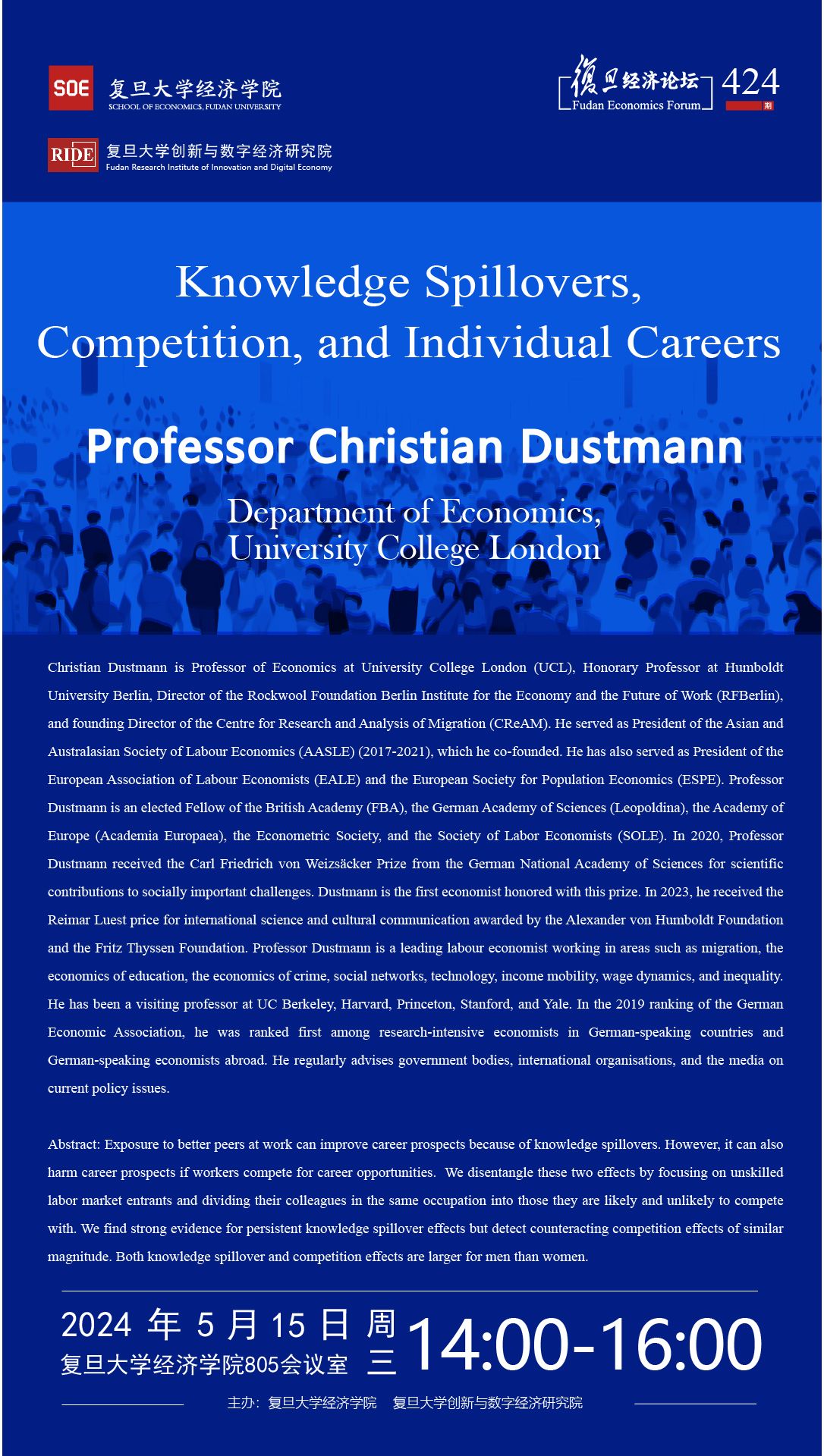
【论坛主题】Knowledge Spillovers, Competition, and Individual Careers
【主讲嘉宾】Prof. Christian Dustmann, University College London (UCL)
【论坛时间】2024年5月15日 14:00-16:00
【论坛地点】经济学院805会议室
【嘉宾简介】Christian Dustmann is Professor of Economics at University College London (UCL), Honorary Professor at Humboldt University Berlin, Director of the Rockwool Foundation Berlin Institute for the Economy and the Future of Work (RFBerlin), and founding Director of the Centre for Research and Analysis of Migration (CReAM). He served as President of the Asian and Australasian Society of Labour Economics (AASLE) (2017-2021), which he co-founded. He has also served as President of the European Association of Labour Economists (EALE) and the European Society for Population Economics (ESPE). Professor Dustmann is an elected Fellow of the British Academy (FBA), the German Academy of Sciences (Leopoldina), the Academy of Europe (Academia Europaea), the Econometric Society, and the Society of Labor Economists (SOLE). In 2020, Professor Dustmann received the Carl Friedrich von Weizsäcker Prize from the German National Academy of Sciences for scientific contributions to socially important challenges. Dustmann is the first economist honored with this prize. In 2023, he received the Reimar Luest price for international science and cultural communication awarded by the Alexander von Humboldt Foundation and the Fritz Thyssen Foundation. Professor Dustmann is a leading labour economist working in areas such as migration, the economics of education, the economics of crime, social networks, technology, income mobility, wage dynamics, and inequality. He has been a visiting professor at UC Berkeley, Harvard, Princeton, Stanford, and Yale. In the 2019 ranking of the German Economic Association, he was ranked first among research-intensive economists in German-speaking countries and German-speaking economists abroad. He regularly advises government bodies, international organisations, and the media on current policy issues.
【摘要】Exposure to better peers at work can improve career prospects because of knowledge spillovers. However, it can also harm career prospects if workers compete for career opportunities. We disentangle these two effects by focusing on unskilled labor market entrants and dividing their colleagues in the same occupation into those they are likely and unlikely to compete with. We find strong evidence for persistent knowledge spillover effects but detect counteracting competition effects of similar magnitude. Both knowledge spillover and competition effects are larger for men than women.
 返回顶部
返回顶部